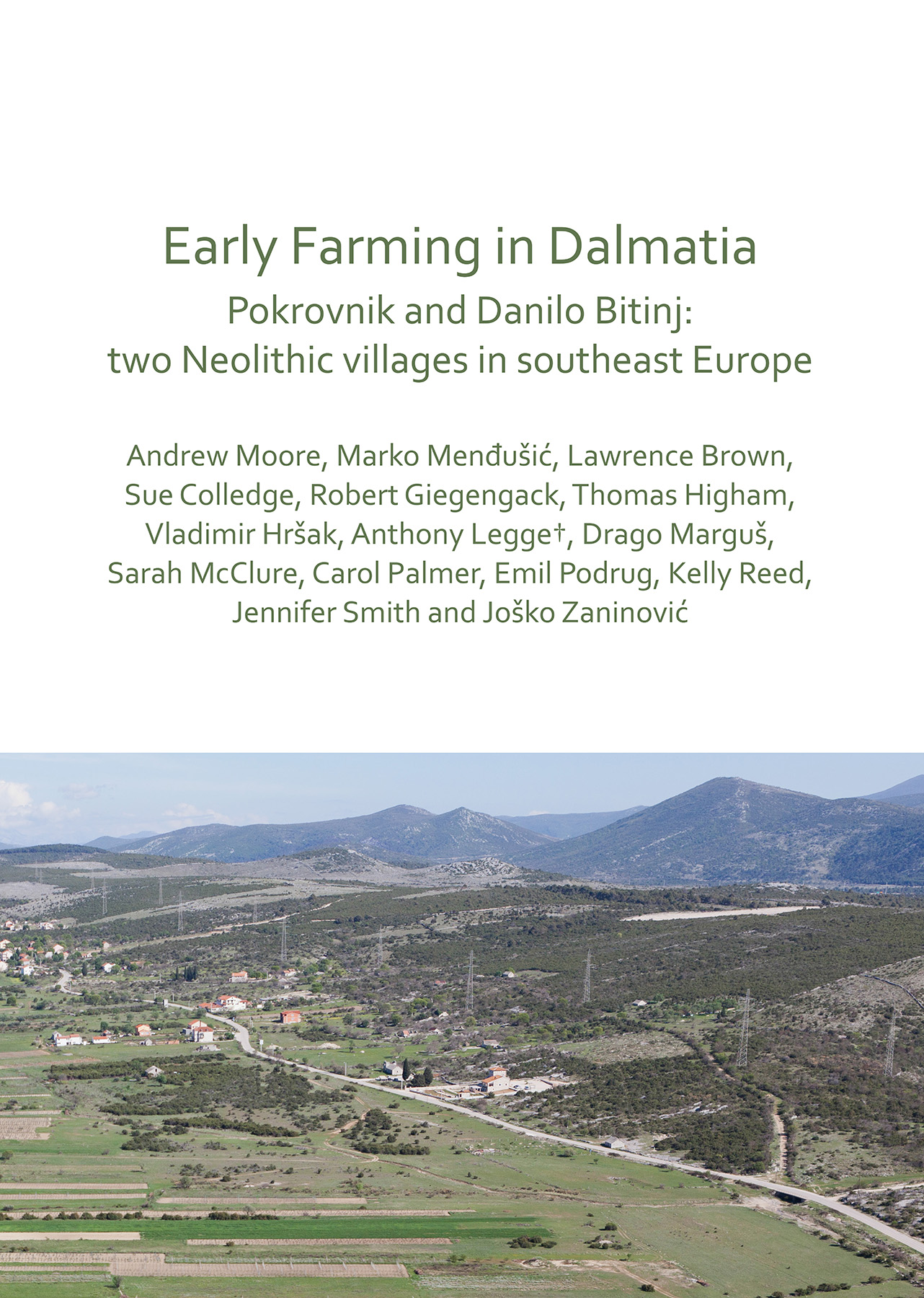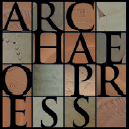
Publishing Scholarly Archaeology since 1997

Download Sample PDF
H 245 x W 175 mm
120 pages
Illustrated throughout in colour and black & white
Published Mar 2019
ISBN
Paperback: 9781789691580
Digital: 9781789691597
Keywords
Early agriculture; Neolithic; Croatia; Dalmatia; Multidisciplinary research; Danilo Bitinj; Pokrovnik
Early Farming in Dalmatia
Pokrovnik and Danilo Bitinj: two Neolithic villages in south-east Europe
By Andrew Moore, Marko Mendusic
Paperback
£26.00
Includes PDF
PDF eBook
(personal use)
£16.00
PDF eBook
(institutional use)
£26.00
This book investigates the expansion of farming from its centre of origin in western Asia through the Mediterranean into southern Europe. Focussing on Dalmatia, it addresses several key questions, including when and how farming reached the area, what was the nature of this new economy, and what was its impact on the local environment.
Contents
Preface; Summary in English; Summary in Croatian; Background to the research; Inception of the project; History of research at Danilo Bitinj and Pokrovnik; Excavations at Danilo Bitinj and Pokrovnik 2003-2006; Danilo 2003-2005; Pokrovnik 2004-2006; Chronology of Pokrovnik and Danilo; Pottery from Pokrovnik and Danilo; Pottery and the Early Farming in Dalmatia Project; The chipped stone, stone tools and other artefacts; The plant remains from Danilo Bitinj and Pokrovnik; Animal husbandry and environment; The faunal remains; The mammalian species found at Pokrovnik and Danilo; The wild species; The fauna of Pokrovnik and Danilo: environmental and economic considerations; Marine shells; Geomorphology and soils in the vicinity of Danilo and Pokrovnik; Contemporary vegetation around Danilo and Pokrovnik; The agricultural survey; Commentary on results achieved thus far and their significance; References
About the Author
ANDREW MOORE’s archaeological interests span the Middle East, the Mediterranean, and Europe. His principal research focus is the beginning of agriculture and sedentary life in the Middle East and their spread to Africa and Eurasia. Moore has conducted field research in Syria, Iraq, Palestine, Croatia and other countries. In the 1970s Moore excavated the site of Abu Hureyra in the Euphrates Valley in Syria threatened by the construction of a new dam. The site was significant because it documented the transition from foraging to farming 13,000 years ago, much earlier than had been suspected. Moore is currently investigating the spread of farming around the Mediterranean and into southern Europe. He is co-director with Marko Mendusic of the Early Farming in Dalmatia Project. The project has demonstrated that agriculture reached the Adriatic region as a mature mixed farming system 8,000 years ago, brought in from farther east by migrating farmers. Moore’s M.A. and D.Phil. degrees are from the University of Oxford. He has taught archaeology at the University of Arizona and Yale University. Past President of the Archaeological Institute of America, Moore is currently Professor and Dean Emeritus at Rochester Institute of Technology. | MARKO MENDUSIC is a prehistoric archaeologist specializing in the Neolithic of Croatia. He was born in the village of Pokrovnik near Sibenik, in a farming family that traces its roots as far back as the seventeenth century. After graduating from the University of Zagreb he became Curator for Archaeology in the Sibenik City Museum and, in time, head of the Archaeological Department there. Mendusic has excavated numerous prehistoric and later sites in northern Dalmatia and on the offshore islands. He has also organized many exhibitions in museums in Croatia. In 2000 Mendusic invited Andrew Moore to join him in developing the Early Farming in Dalmatia Project, and has been co-director of the project since its inception. Mendusic became head of the Conservation Department of the Ministry of Culture in Sibenik in 2004. His responsibilities included preservation of historic buildings in the region at a time of rapidly increasing development. A long-standing member of the Croatian Archaeological Society, his distinguished service as Vice President and in other capacities was honoured with the Don Sime Ljubic Award. Recently retired, Mendusic continues to participate in excavations while maintaining his family’s farming interests.Reviews
'A summary chapter on the lifeways of the people of these villages is a thoughtful conclusion to the work. Their economy was based on full-time mixed farming and transhumance, with little dependence on wild foods, and with some trade in goods including obsidian. The likely cycle of the year for these farmers and herders is eloquently described in a way that gives the reader a feeling of having at least a small window of insight into the lives of people in these long-lost cultures. This research should be of interest to anyone studying Neolithic Eurasia.'

 Add to wishlist
Add to wishlist
